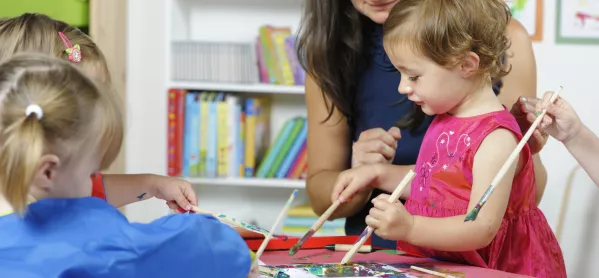A new Ofsted report has cast fresh doubts on the wisdom of the government’s controversial new “baseline” assessments for four-year-olds.
The watchdog’s early years annual report, published today, warns that assessing children when they start school could hamper efforts to improve nursery education.
Ofsted says that schools need to work more closely with nurseries and preschools to close the achievement gap between the most disadvantaged children and other pupils. But it says this collaboration could be discouraged if schools assess pupils on entry.
“Because [Ofsted] inspectors take account of the school’s assessment of children’s development on entry to reception there is a perverse incentive for schools to only begin to intervene once children have joined the schools,” the report warns.
It gives the example of an unnamed primary where data showed that more than half of children who started school last year had skills and abilities similar to those of an average two- to three-year-old. But Ofsted inspectors found that this this was “not an accurate reflection of the lively, articulate and keen-to-learn children the inspection team met in the reception classroom”.
The remarks come as thousands of schools prepare to carry out new baseline assessments of their Reception classes this September.
Ofsted suggests that schools could be incentivised to work more closely with other early education providers.
In a speech launching the report in London, Sir Michael Wilshaw, chief inspector, said that there was a “yawning gap” between standards for the most advantaged five-year-olds and their poorest counterparts. He said that schools were best placed to tackle the barriers that disadvantaged children face - but that school nurseries were being “colonised by the middle classes”.
“The reality is that these better-off children don’t get any particular advantage from being in a school from the age of 2 - they would be just as well catered for from an educational perspective in a private nursery, a childminder, or indeed at home,” he said. “It’s the poorer children who stand to benefit the most from this type of environment at the earliest age. But this is just not happening.”
The new report shows that 43,000 two-year-olds are attending primary school in 2015 and that if schools took a proportionate number then 17,000 would be disadvantaged children qualifying for govenment-funded places. Instead, government statistics show there are just 3,440 of them in primaries.




